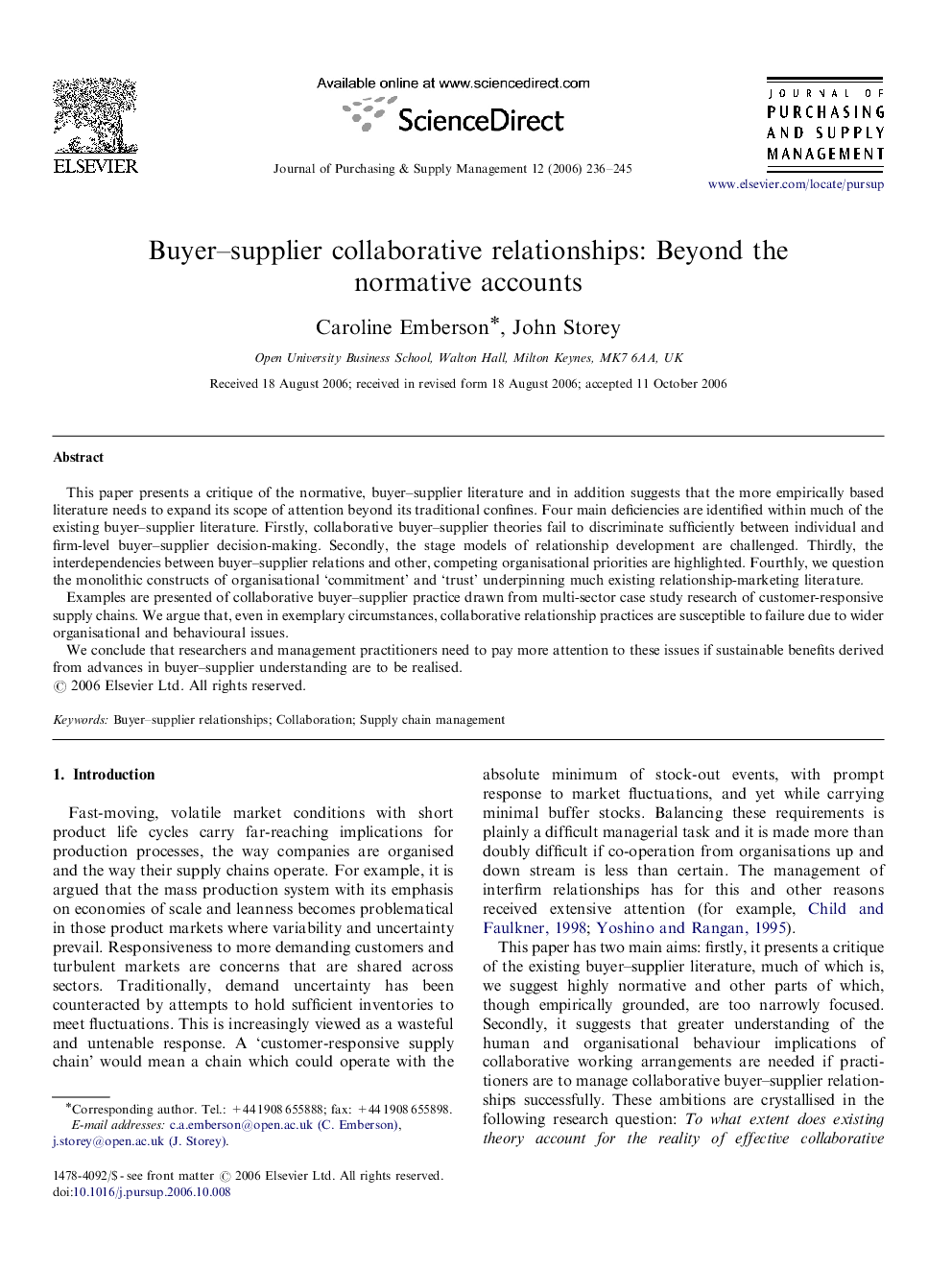| Article ID | Journal | Published Year | Pages | File Type |
|---|---|---|---|---|
| 1021114 | Journal of Purchasing and Supply Management | 2006 | 10 Pages |
This paper presents a critique of the normative, buyer–supplier literature and in addition suggests that the more empirically based literature needs to expand its scope of attention beyond its traditional confines. Four main deficiencies are identified within much of the existing buyer–supplier literature. Firstly, collaborative buyer–supplier theories fail to discriminate sufficiently between individual and firm-level buyer–supplier decision-making. Secondly, the stage models of relationship development are challenged. Thirdly, the interdependencies between buyer–supplier relations and other, competing organisational priorities are highlighted. Fourthly, we question the monolithic constructs of organisational ‘commitment’ and ‘trust’ underpinning much existing relationship-marketing literature.Examples are presented of collaborative buyer–supplier practice drawn from multi-sector case study research of customer-responsive supply chains. We argue that, even in exemplary circumstances, collaborative relationship practices are susceptible to failure due to wider organisational and behavioural issues.We conclude that researchers and management practitioners need to pay more attention to these issues if sustainable benefits derived from advances in buyer–supplier understanding are to be realised.
